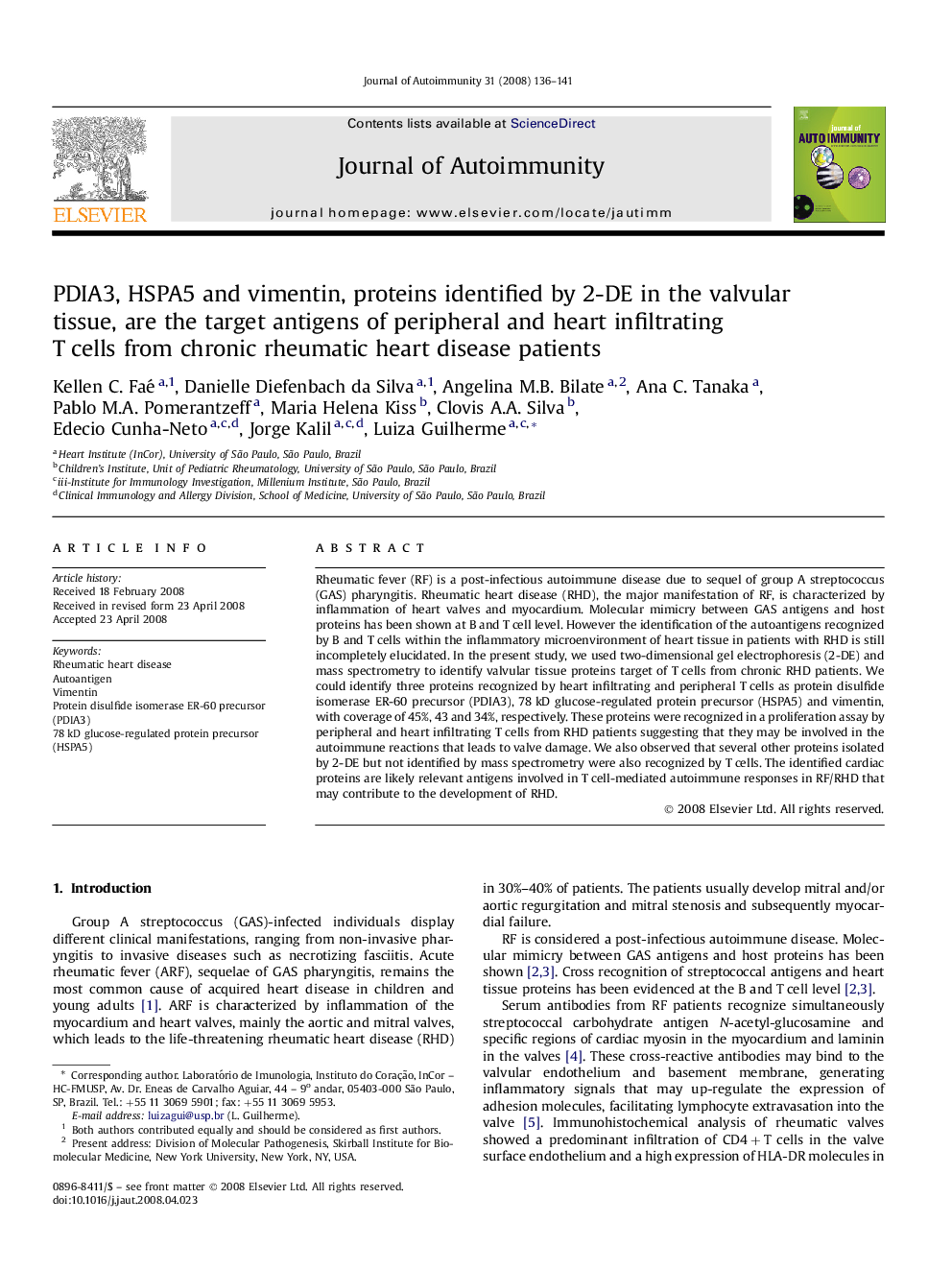| Article ID | Journal | Published Year | Pages | File Type |
|---|---|---|---|---|
| 3368271 | Journal of Autoimmunity | 2008 | 6 Pages |
Rheumatic fever (RF) is a post-infectious autoimmune disease due to sequel of group A streptococcus (GAS) pharyngitis. Rheumatic heart disease (RHD), the major manifestation of RF, is characterized by inflammation of heart valves and myocardium. Molecular mimicry between GAS antigens and host proteins has been shown at B and T cell level. However the identification of the autoantigens recognized by B and T cells within the inflammatory microenvironment of heart tissue in patients with RHD is still incompletely elucidated. In the present study, we used two-dimensional gel electrophoresis (2-DE) and mass spectrometry to identify valvular tissue proteins target of T cells from chronic RHD patients. We could identify three proteins recognized by heart infiltrating and peripheral T cells as protein disulfide isomerase ER-60 precursor (PDIA3), 78 kD glucose-regulated protein precursor (HSPA5) and vimentin, with coverage of 45%, 43 and 34%, respectively. These proteins were recognized in a proliferation assay by peripheral and heart infiltrating T cells from RHD patients suggesting that they may be involved in the autoimmune reactions that leads to valve damage. We also observed that several other proteins isolated by 2-DE but not identified by mass spectrometry were also recognized by T cells. The identified cardiac proteins are likely relevant antigens involved in T cell-mediated autoimmune responses in RF/RHD that may contribute to the development of RHD.
